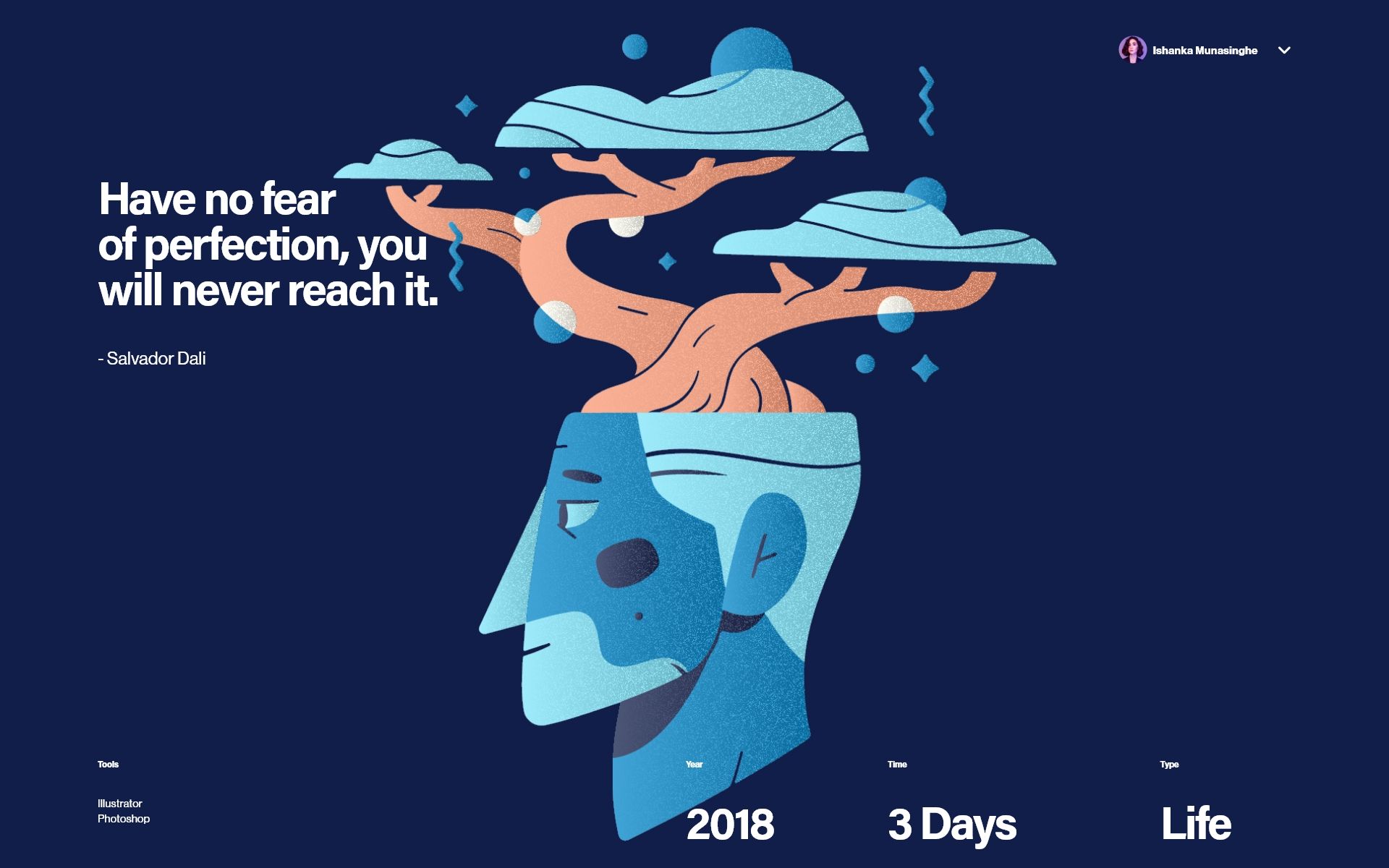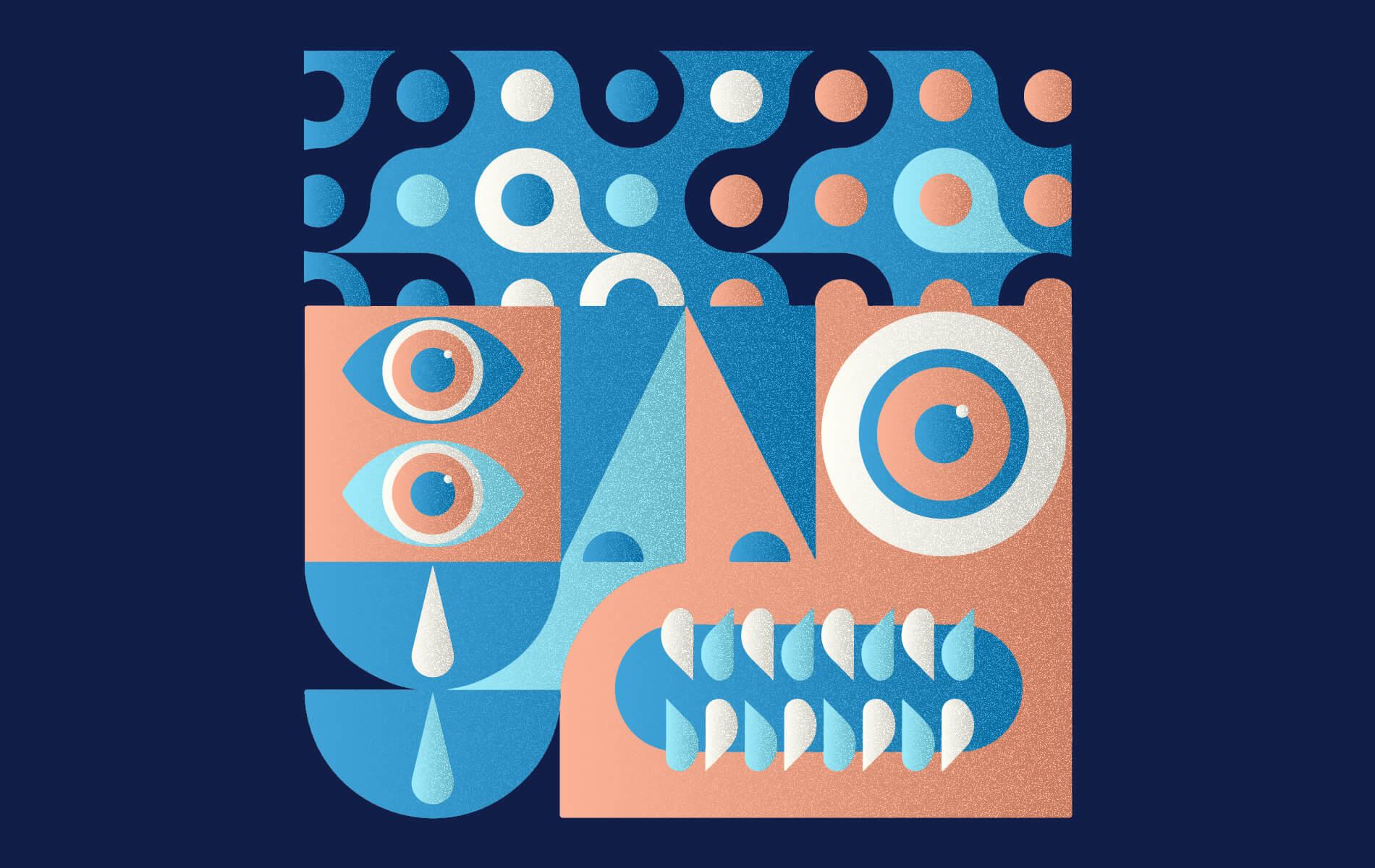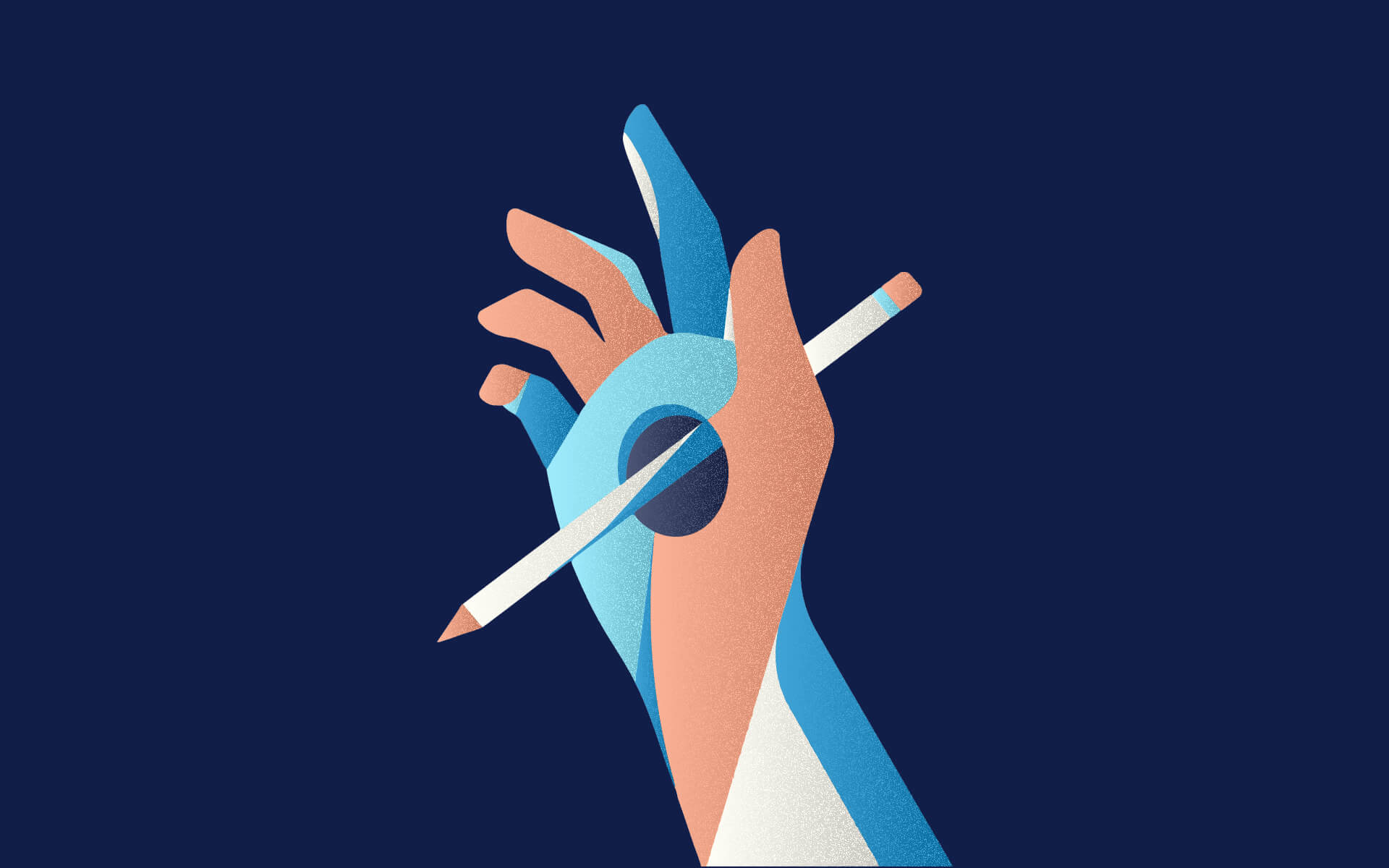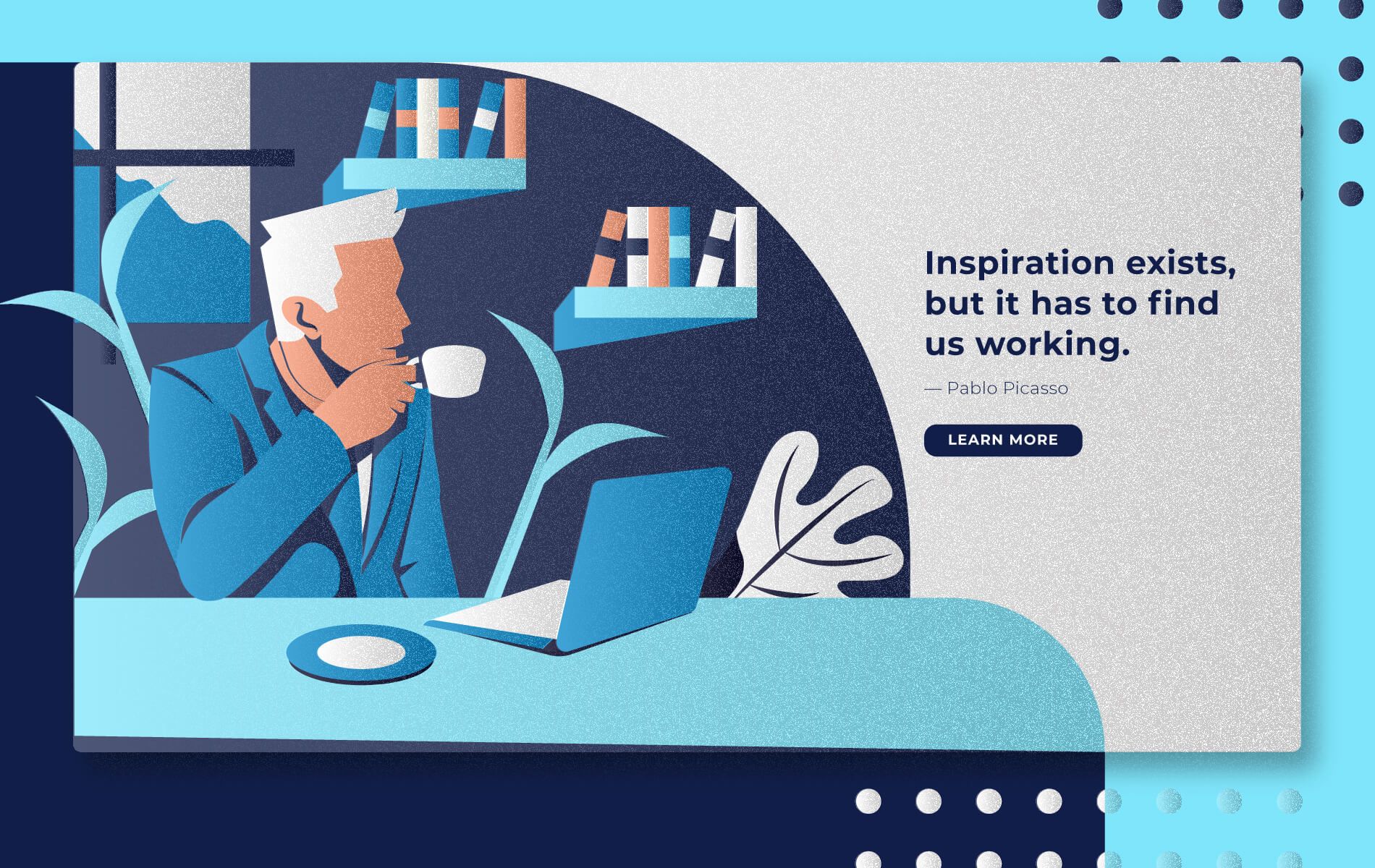Creative Blocks

What are Creative blocks and how to overcome them?
For a long time, I assumed that creative block was only a transient situation that prevented you from releasing new ideas and unleashing creativity. That it comes and passes quickly, and all you need is a decent night’s sleep and a cup of coffee in the morning. It turns out that creative blockages are a real problem for painters, designers, and other creatives. It can have an impact not just on your work but also on your entire well-being and even your mental health.

What is a creative block?
In a nutshell, a creative block is a mental condition that hinders you from creating your typical higher-level or creative output. It can happen when you least expect it and linger far longer than you’d prefer. Even if you love what you do (and I hope you do), there is no assurance that you will never suffer from this illness. On the contrary, you are almost certainly going to have to deal with it one day. That is why I feel it is critical to be prepared for it. First, you must be aware that you have been struck by one. Let’s take a closer look at it.
Signs of creative blocks.
We all have various reactions to it and different motives for doing so. However, there are certain parallels that are very typical of this topic. I differentiate three major symptoms. Some of these indications may be familiar to you straight away:
- Struggling to get started on a new project
- Stuck in a rut and questioning your ability
- Work delivery delays and procrastination
If you’ve had any of these symptoms, you’ve most likely met our arch-nemesis. But don’t be concerned; you’re not alone. Creative blockages may occur at any point in a person’s career, regardless of how long they have been pursuing their artistic path, how many achievements they have, or how great they are.
Causes of creative blocks
Now that you know you’ve reached a creative wall, it’s time to figure out where it’s coming from.
This issue is caused by a number of factors. They differ significantly based on your creative sector, living and working environment, history, psychological profile, habits, and so on. But, based on my experience, the following are the top five:
Overwork is a rather typical occurrence.
We are frequently caught up in the maelstrom of our daily work routine. And it’s easy to overlook the fact that the sheer volume of work might increase from time to time. Meanwhile, the amount of time we spend resting remains constant or even decreases. Especially during critical initiatives or hectic seasons. As a result, we don’t realize how much we labour on a daily basis. Meanwhile, it is one of the most significant and prevalent causes of creative blockages.
Anxiety and self-doubt
Second thoughts and feelings of anxiety are not uncommon. Sometimes a working notion does not materialize into a genuine consequence quickly enough or does not turn out the way we expected. Or we stumble upon someone else’s implementation of our concept that appears to be superior to what we generated. All of this may lead to self-doubt and a slew of other unpleasant emotions. This has a direct impact on our creative production, resulting in the problem of creative block.
Criticism and rejection of your work
It’s difficult to take criticism of your own work, especially if you’ve worked hard on it. When it isn’t fair or comes from someone who lacks a thorough grasp of the subject or the necessary background to be a judge. And if we allow this criticism to affect us, it may easily lead to feelings of insecurity and an inspirational crisis.
External factors such as family or financial difficulties
It goes without saying that we live in a complicated and fast-paced world. And it’s only getting weirder with each passing year. Yes, we have more chances, but they also come with greater duties and obligations. Earning money has always been and continues to be one of the most difficult issues that individuals of all professions face. Add to it the ever-changing complexity of relationships, and it’s easy to become overwhelmed and lose our bearings.
Existential hazard
We all have times in our lives that are really significant to us. It might be anything, from getting married to changing jobs or relocating to a new place. However, these moments frequently serve as milestones that initiate a period of introspection, when we begin to question the purpose of our lives in general when we slow down and begin to evaluate our present and past actions. Needless to say, this may be quite mentally taxing. As a result, we may have a creative block.

Overcoming creative block
Almost everyone, after all, encounters creative blockages at some point in their lives. As a result, the question isn’t when it happens, but what to do when it does. What is more important than being able to cope with and overcome creative blockages? Understanding the nature of the problem is really beneficial, which is why I addressed it first. But now let’s go into the problem-solving portion of this issue.
These six options are the most beneficial and successful in my opinion. Depending on the scenario, you may want to mix a few of these. Following a single one, on the other hand, may be sufficient. It is up to you to experiment and find what works best for you.
Acknowledge that you are experiencing a creative block.
Recognizing that you have a creative block is an important first step toward overcoming it. No, you’re not lazy or unqualified to do your job; it’s simply one of those horrible days. It happened for a purpose, thus this is a natural process of cause and effect. Don’t let self-doubt and anxiety overwhelm you; instead, remain cool and assess the problem. Recognize your reasons for feeling this way and accept that it will pass.
Change your routine and give yourself a break.
Don’t let yourself get caught up in your situation, and don’t waste time thinking about it. Take some action. The simplest and most effective is to take a break from what you’re doing. Just take a break and do something different. Go wash your dishes, read a book, go on a bike ride (as you may have guessed, I’m a cyclist), or sing your favourite tunes.
Even a small change in your environment might help — go for a walk somewhere you haven’t visited before. Alternatively, dine at a new café. A nice old-fashioned vacation typically works wonders.
Change your focus to your favourite project.
Working on a dream project might be a good mental diversion. You are not required to report your findings to anyone or fulfil any deadlines — you are in complete control here.
Allow your thoughts to roam, experiment, and have fun. Even if nothing particularly artistic comes of it, the change of activity may assist to relieve tension and dissolve the creative block.
Make time for yourself.
We artists are incredibly sensitive people, which is why we must pay close attention to our mental health. Listen to your body and attempt to spot any warning signals.
Allow yourself to slow down if you feel you are taking on too much. Do not accept any additional employment for a period of time. Perhaps you need a short vacation from social media or perhaps a couple of days alone to clean the clutter in your mind. Figure out what works best for you and give yourself some Me-time. Be self-centred. This is one of the few times when it’s truly a good thing.
Don’t strive for perfection.
A relentless pursuit of perfection might sometimes be the source of your creative block. Nothing appears to be good enough, and you continue to make changes to your work while being dissatisfied with the outcomes. Being too focused on the end outcome might even deter you from starting a new activity. Because every concept appears to be subpar. I’ve read of well-known authors who stopped writing because they were frightened their next work wouldn’t be good enough. This, I believe, applies to the other creatives as well.
My suggestion here is simple: don’t become obsessed with generating the ideal image. In the end, everything is relative. What you believe is perfect now may not be so tomorrow. So simply begin the composition and let your creative ideas flow, whatever they may be at the time. Take little steps and work on your tasks on a constant basis, even if it is only for half an hour every day. Allow your brain to think you are making progress, and you will begin to feel inspired again at some time.
Please express your thoughts.
It’s sometimes critical to get a new perspective on your work. Request an honest view from your community, a close friend, or a coworker. When you express your fears, they will look half as frightening.
Everyone requires words of comfort and encouragement from time to time, and it is not shameful to seek them when you are feeling down and uninspired. Even if you do not receive any particular responses or comments, articulating your worries will allow you to examine the root of the issue from a different angle.

Conclusion
I hope this piece has helped you understand what a creative block is, what causes it, and, most importantly, what to do when you face one. Just remember that we all meet roadblocks from time to time, so there’s no need to panic or become concerned about it. If you follow these procedures, the barrier will be removed before you realize it.
